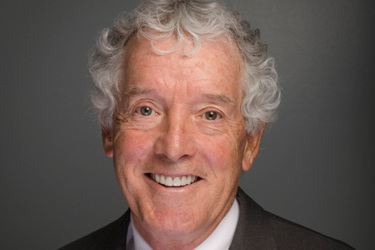Companies to Watch: Promontory Therapeutics
By Wayne Koberstein, Executive Editor, Life Science Leader
Follow Me On Twitter @WayneKoberstein

Developing a potential small molecule breakthrough to challenge the biopharma paradigm.
SNAPSHOT
Promontory Therapeutics aims not only for the kind of innovation that improves the action of a drug class, but also for a revolution in how a drug accomplishes that action. The company is developing a small molecule agent for the immunotherapy space in cancer, where monoclonal antibodies and other large molecule proteins have so far ruled unchallenged. Its sole pipeline product, coded PT-112, generates an immune response with T cell enhancement and tumor-limiting ribosome suppression. PT-112 is completing enrollment in a Phase 2 trial for treating Metastatic Castration-Resistant Prostate Cancer (mCRPC). PT-112 is also in its Phase 2 trial for thymoma and thymic carcinoma and has completed a Phase 1 trial for relapsed or refractory multiple myeloma (RRMM), and is in various stages of exploration for non-small cell lung cancer (NSCLC) and other indications.
WHAT’S AT STAKE
Just when the biopharma industry thinks it’s going one way, it suddenly gets pulled in another, unanticipated direction. Is that what’s happening now with small molecules? Wide industry concern over U.S. pricing legislation initially seemed resigned to the new law’s placement of small molecule drugs in the low-innovation category, only to coincide with the entry of non-biochemical products. More and more candidates for this column are small molecule developers that, like Promontory, are building on their individual discoveries.
Promontory’s lead program emerged from research by the late Dr. Rathindra Bose, head of research at Ohio University, who produced the compound that would become PT-112. A seasoned financial expert, Robert Fallon, cofounded the company, became its CEO, and began raising funds in 2014. “We essentially financed ourselves with private high-end growth investors and substantial family officers,” Fallon says. “We haven’t brought on any traditional biotech VCs yet. Capital from the family offices, particularly those who have a lot of biotech experience, is relationship driven.”
Contrary to common expectations for small molecule drugs, PT-112 is not a chemotherapy but an immunotherapy, Fallon stresses. Although the drug initially kills tumor cells directly, by starving them of ribosomes, it also imparts the unique signature of the dying cancer tissue to T cells that guide them to the tumor where they launch their own attack. Chemically, the drug is a pyrophosphate-platinum conjugate with an affinity for bone structures (outside of the marrow). That affinity has drawn interest for one of its target indications, prostate cancer. It is also distributed to the liver and the lung, major sites of metastatic disease, a trait that implies a potential for treating a wider range of cancer types.
How long before small molecule engineering spreads so widely it replaces the “old” biologics paradigm? Companies like Promontory, now exploring every avenue of discovering and developing small molecule challengers to pipelines long dominated by biologic drugs, will be the ones to watch for answers to that question.
VITAL STATISTICS
Employees: 21
Headquarters: New York, NY
Finances: Total raised, $78M, with Series A for $37M in 2021. Also funded by private investors and family investment offices in the U.S., Europe, and Asia.
Research partnerships/funding:
- National Cancer Institute: to evaluate PT-112 as a treatment for thymoma and thymic carcinoma, under FDA Orphan Drug Designation
- Partnerships with multiple clinical sites led by Memorial Sloan Kettering Cancer Center, Mayo Clinic and Gustave Roussy (Paris) to evaluate PT-112 in patients with metastatic castration-resistant prostate cancer
- Other partners: Prostate Cancer Foundation, MD Anderson Cancer Center, Weill Cornell Medical Center, Centre Hospitalier Universitaire Vaudois (CHUV), Lausanne, Switzerland
LATEST UPDATES
November 2023: Presented data on the molecular mechanisms of PT-112's immunogenic effects.
October 2023: Presented data on the molecular effects of PT-112 and Phase 2 data on PT-112 in thymic epithelial tumors.
September 2023: Selected as the first international biotech company member of the Paris-Saclay Cancer Cluster.
